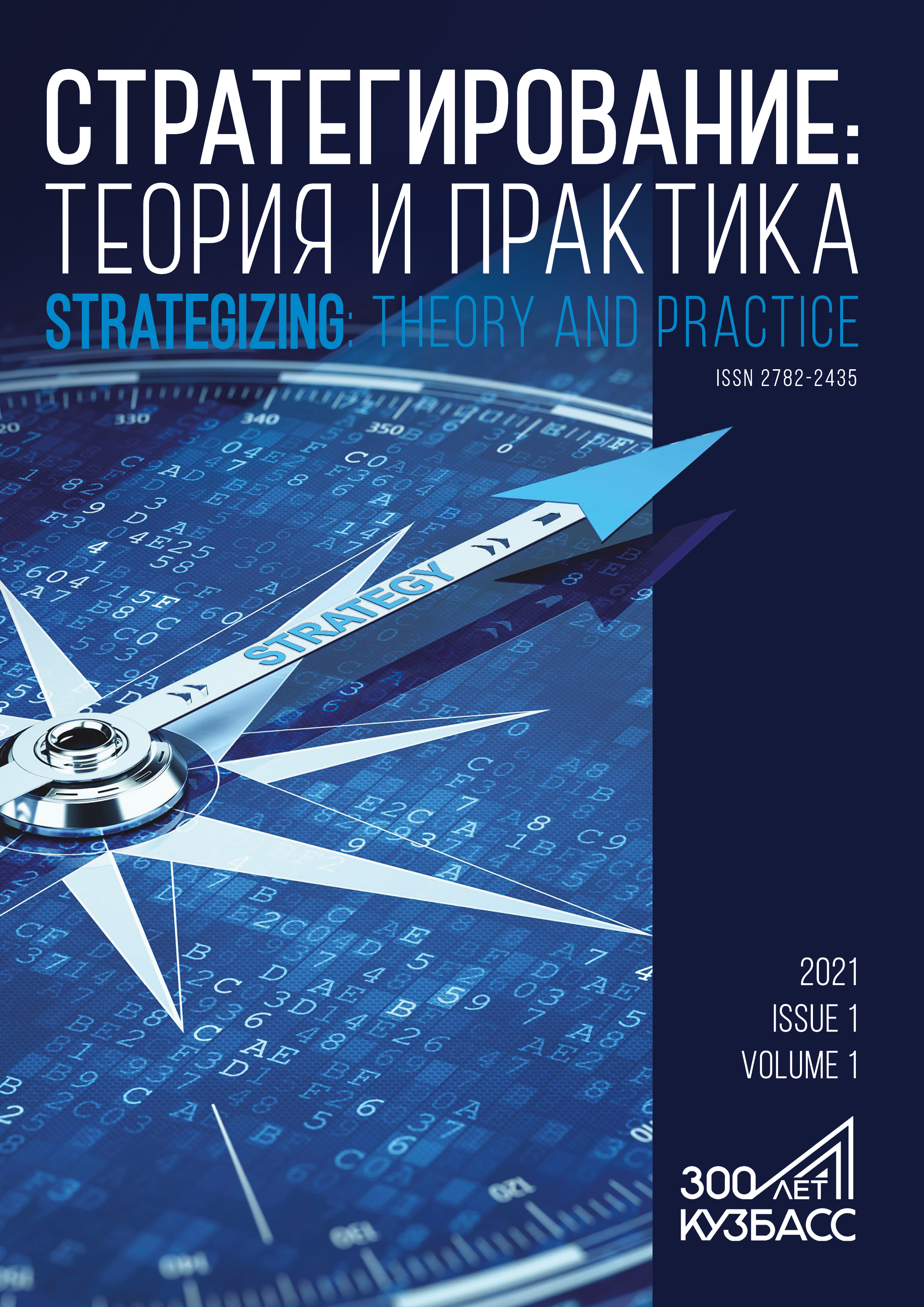Moscow, Russian Federation
As a result of economic digitalization, the library acts a social institution that performs an extremely important adaptive function: it improves social stability by preserving, exchanging, and disseminating the accumulated spiritual, scientific, and technical potential. As a result, libraries need innovative management approaches. In particular, they need a long-term cultural policy to create a single information space for authors, readers, publishers, and book traders. The digital economy offers new opportunities to provide an expanded list of services that go in line with the interests and needs of various categories of readers. The author used the strategizing methodology developed by Professor V.L. Kvint as a universal tool for building advanced development strategies. The approach made it possible to form a new library innovation management system. The OTSW method provided new program activities for the development strategy of the Russian State Library and revealed its innovative potential. The analysis also made it possible to prioritize the temporal and strategic goals, as well as to identify the promising development technologies. The resulting principles define the development strategy of a modern library as a center of digital competencies and new electronic services. The article introduces the practical methods and their application procedure to enhance the existing and potential opportunities of libraries.
library, innovations, book publishing, advanced development, strategizing, strategic priorities, technologies, digital transformation
1. Astakhova LV. Natsionalʹnaya programma “Tsifrovaya ehkonomika Rossiyskoy Federatsii”: Mesto i rolʹ bibliotek [National Program of the Digital Economy of the Russian Federation: The Place and Role of Libraries]. Bibliotechnoe delo [Librarianship]. 2020;357(3):18-20. (In Russ.)
2. Beskaravaynaya EV, Mitroshin IA, Kharybina TN. Portal of scientific library as an element of a common digital space of scientific knowledge. Information and Innovations. 2020;15(3):7-13. (In Russ.) https://doi.org/10.31432/1994-2443-2020-15-3-7-13
3. Akdemir A, Achechova A, Guichard B, Guskov AE, Lakhayeva A, Rakityanskaya A, et al. Libraries of the world during the pandemic: A new experience and the first conclusions. Bibliosphere. 2020;(3):65-83. (In Russ.) https://doi.org/10.20913/1815-3186-2020-3-65-83
4. Volkhonskaya EN. Library and book in the digital age: project development vectors. Library and Information Science. 2019;68(3):330-335. (In Russ.) https://doi.org/10.25281/0869-608X-2019-68-3-330-335
5. Volkhonskaya EN. National digital book platform in the discourse of the national bibliography: Some results of the 33rd Moscow International Book Fair. Library and Information Science. 2020;69(5):553-558. (In Russ.) https://doi.org/10.25281/0869-608X-2020-69-5-553-558
6. Golubtsov SB. National library of Russia and consolidation of national bibliography resources. Bibliography and Bibliology. 2020;431(6):15-18. (In Russ.)
7. Davydova NR. Electronic library of the RSL: Development stages and features of formation of digital collections. Library and Information Science. 2019;68(2):144-154. (In Russ.) https://doi.org/10.25281/0869-608X-2019-68-2-144-154
8. Dvorkina MYa, Kozlova EI. Theoretical issues of creation of model municipal libraries. Library and Information Science. 2019;68(4):354-361. (In Russ.) https://doi.org/10.25281/0869-608X-2019-68-4-354-361
9. Dzherelievskaya IK. Library as a social-cultural environment. Herald of the Chelyabinsk State Academy of Culture and Arts. 2016;46(2):154-167. (In Russ.)
10. Kvint VL. The concept of strategizing. Kemerovo: Kemerovo State University; 2022. 170 p. (In Russ.) https://doi.org/10.21603/978-5-8353-2562-7
11. Koretskiy AS. Industriya 4.0. Strategirovanie operezhayushchego razvitiya sovremennoy biblioteki [Industry 4.0. Strategy for the advanced development of a modern library]. Novosibirsk: Akademizdat; 2022. 116 p. (In Russ.)
12. Koretsky AS. Principles of forming digital ecosystem of process management based on business model. E-Journal Public Administration. 2021;(84):221-240. (In Russ.) https://doi.org/10.24412/2070-1381-2021-84-221-240
13. Matlina SG. Library space: Main principles and characteristics. Part 1. Scientific and technical libraries. 2016;(6):83-97. (In Russ.)
14. Natsionalʹnaya knizhnaya platforma kak osnova vzaimodeystviya izdatelʹstv i bibliotek [National book platform as a basis for interaction between publishers and libraries]. Universitetskaya kniga [[University Book]. 2022;(4):46-49. (In Russ.)
15. Natsionalʹnaya knizhnaya platforma: strategiya razvitiya [National book platform: development strategy]. Universitetskaya kniga [[University Book]. 2020;(7):28-33. (In Russ.)
16. Pinchuk VN, Zhuravlev DM. Predpriyatie. Tekhnologii i ehkonomika tsifrovoy transformatsii [Company. Technologies and economics of digital transformation]. Novosibirsk: Akademizdat; 2020. 216 p. (In Russ.)
17. Babkin AV, Burkaltseva DD, Kosten DG, Vorobyov YuN. Formation of digital economy in Russia: Essence, features, technical normalization, development problems. St. Petersburg State Polytechnical University Journal. Economics. 2017;10(3):9-25. (In Russ.) https://doi.org/10.18721/JE.10301
18. Chaadaev VK. Organizatsionno-ehkonomicheskie usloviya i vozmozhnosti reinzhiniringa biznes-protsessov [Organizational and economic conditions and opportunities for business process reengineering]. Bulletin of Chelyabinsk State University. 2007;(19):139-146. (In Russ.)
19. Baskara S, Mehta K. What is innovation and why? Your perspective from resource constrained environments. Technovation. 2016;(52-53):4-17.
20. Baryshev RA, Tsvetochkina IA, Babina OI, Kasyanchuk EN, Manushkina MM. Transformation of university libraries during the digital era. Journal of Siberian Federal University. Humanities and Social Sciences. 2020;13(7):1073-1089. https://doi.org/10.17516/1997-1370-0627






